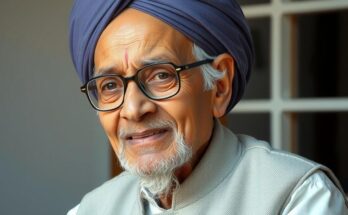Elon Musk has proposed a $1 million daily giveaway to registered Pennsylvania voters who sign a conservative petition associated with his super PAC, which may conflict with federal laws prohibiting payments for voter registration. This initiative has prompted legal scrutiny as Musk’s supporters assert it may not violate such laws by linking payments to petition signatures rather than direct voter registration. Legal experts warn the practice approaches gray legal areas.
Elon Musk has recently escalated his campaign efforts to assist Donald Trump in securing votes in Pennsylvania, announcing a controversial initiative that involves giving away $1 million each day to randomly selected registered voters who endorse a conservative petition initiated by his super PAC. This initiative, aimed at boosting voter registration ahead of an impending deadline, has raised significant legal questions regarding its compliance with federal laws that prohibit compensating individuals for either registering to vote or casting a vote. According to existing legal frameworks, offering any monetary value as an incentive for voting or registration can be classified as a crime. However, Musk’s supporters contend that the legality of the initiative rests on the specifics of the arrangement, asserting that since the payment is linked to signing a petition rather than direct voter registration, it does not violate the law. To further incentivize participation, Musk has escalated his monetary offerings, from initial referral bonuses to substantial payouts for those who facilitate voter sign-ups. This noteworthy strategy came to the forefront during a town hall event in Harrisburg, Pennsylvania, where Musk publicly awarded the first $1 million to a participant, John Dreher, further solidifying the initiative’s controversial presence in the political arena.
The discussion surrounding Elon Musk’s $1 million giveaway is framed within a broader conversation about campaign finance and the regulation of voter participation incentives. Legal statutes clearly prohibit the use of monetary rewards as a means to influence voter behavior or registration. This concern is particularly pronounced during election cycles, as individuals and organizations seek to motivate voter turnout and engagement. While certain practices such as providing transportation to polling places are acceptable, the implications of monetary incentives, particularly in the context of Musk’s proposal, are murky and contentious. The delicate balance between fostering voter participation and adhering to legal standards is at the heart of this unfolding scenario, with potential ramifications for future campaign strategies and electoral integrity.
In conclusion, Elon Musk’s $1 million giveaway raises significant legal considerations surrounding the intersection of campaign finance laws and voter engagement strategies. The initiative has prompted legal scrutiny over the appropriateness of using financial incentives to encourage voter participation and registration. While Musk’s supporters argue for the legality of his approach, election lawyers express concern that the initiative dances too close to legal boundaries. As this situation continues to develop, it underscores the complexities of modern electoral strategies and the ongoing dialogue about the role of wealth in influencing political outcomes.
Original Source: www.nytimes.com




